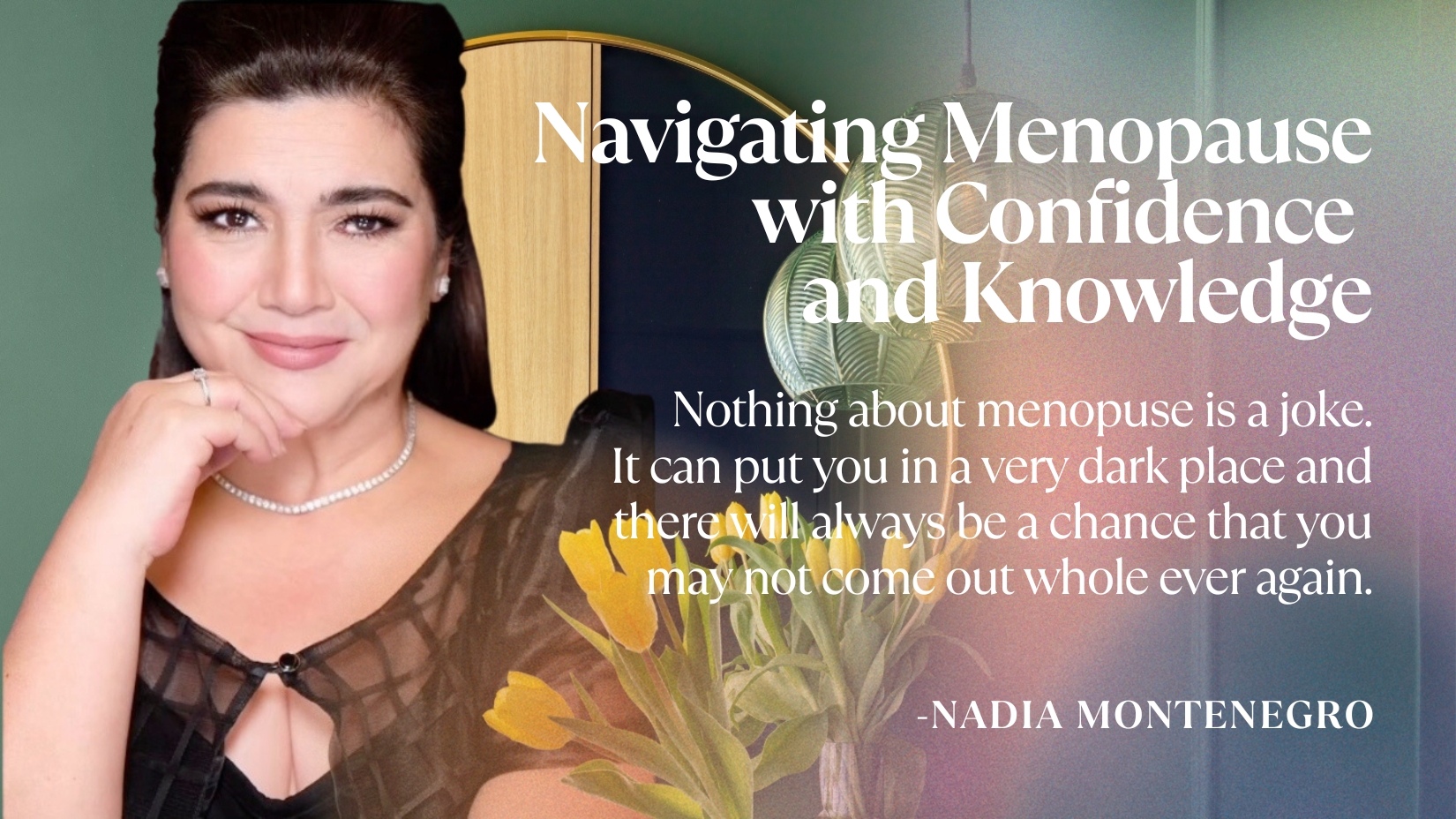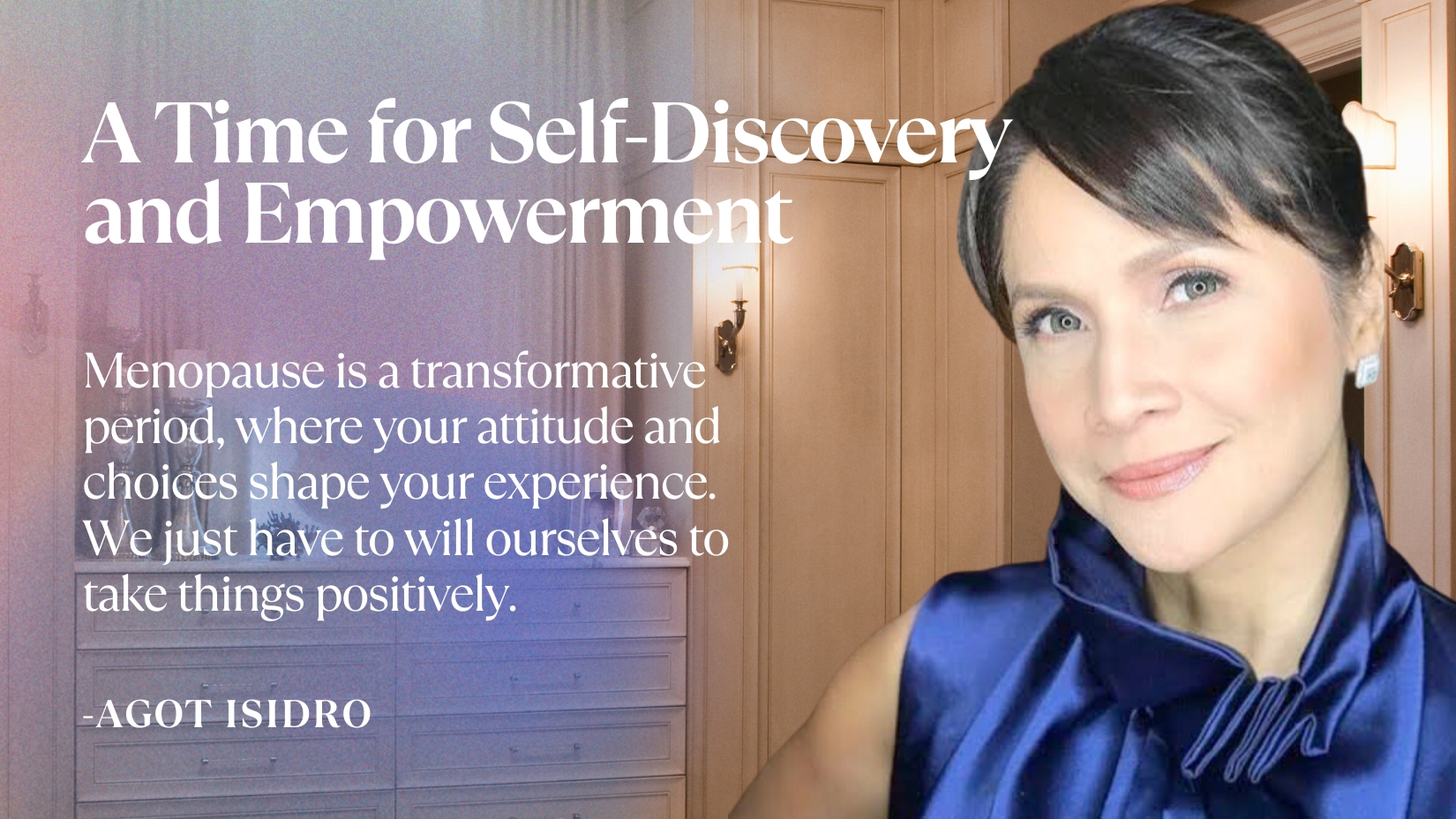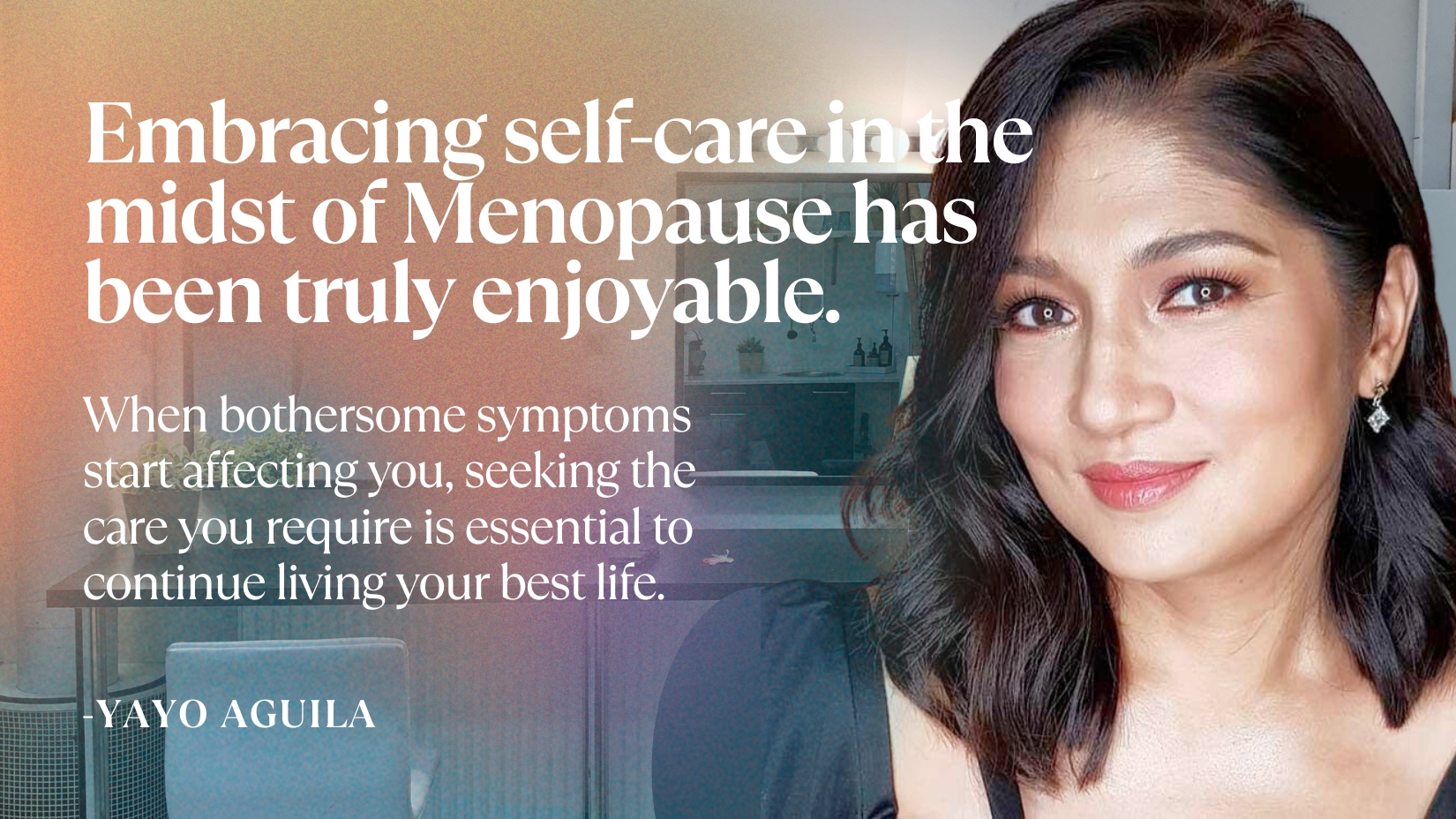Celebrities talk: Menopause is no joke
Challenging menopause stereotypes
At A Glance
- Their journeys provide the strength to comprehend that this phase too shall pass.

By Mari Zhar Carvill
In 2019, my quest to understand menopause took an unexpected turn when a close couple we knew, friends of both my husband and me, decided to part ways. While I firmly believe in respecting the privacy of others' marital matters, my curiosity got the best of me. I couldn't help but wonder why, after nearly two decades together, they were going their separate ways.
To shed light on the challenges their relationship faced, I began sharing articles and links about menopause with both the wife and husband, hoping that a deeper understanding might lead to reconciliation. Yet, it wasn't just their marriage I was concerned about; their breakup ignited worries about my own relationship. Despite my strong faith in our union, their separation prompted me to explore the realm of menopause further, a journey that began during the pandemic with an online hormone coaching course.
Menopause is a natural and inevitable phase in a woman's life, yet it is often stigmatized and ignored due to societal misconceptions and a lack of awareness. The cultural silence surrounding menopause may stem from outdated beliefs that associate it with aging and loss of femininity. Additionally, the discomfort associated with discussing menopausal symptoms openly may contribute to the stigma surrounding this important life transition, affecting relationships and women's well-being.
During this exploration, I discovered the stages of menopause. Perimenopause, which means "around menopause," typically begins in women aged 40 to 44, characterized by changes in menstrual flow and cycle length. This transitional phase can manifest with mild, short-lived symptoms for some women, while for others, it can be a challenging rollercoaster ride with hot flashes, vaginal dryness, sleep disturbances, and memory issues that often linger for years, impacting various aspects of life. Each woman's menopausal experience is unique.
Menopause: Not a laughing matter

Menopause often remains an unspoken topic, making meaningful conversations about it elusive for both men and women. But why does this silence persist? Many people frequently associate menopause with a negative image of women who are constantly irritable and aging. A simple internet search for "menopause images" yields pictures of women appearing agitated, sweaty, and angry. Yet, in reality, this stereotype doesn't align with the experiences of most women. So, why does this stereotype endure? It's likely because confronting the inevitability of aging is something few wish to do. This fear of aging is a shared concern among both men and women. Additionally, industries focused on beauty and fashion profit by idealizing youth, further reinforcing negative stereotypes associated with menopause, and adding pressure on women to maintain their youthful appearance.
I had heard about mood changes and the jokes about grumpy older women, but I had never comprehended the profound impact of menopause on a woman's mental health.
Nadia Montenegro: "I was experiencing a lot of stress—a simple remark or action could make me explode with rage. I was placed in a very dark place—literally, emotionally, and mentally—even spiritually. I stopped talking to God and praying. And at first, I could not even understand myself. For six months, I could not point out what was happening to me. Until I could no longer take it. There was even a point when I wanted to jump out of the window of my daughter's condo. It was then that I begged my children to help me".
Menopause: A personal journey

Menopause is a natural phase in a woman's life, typically occurring between the ages of 45 and 55. It marks a significant transition with decreasing estrogen levels and the cessation of ovarian follicle activity, often manifesting as changes in the menstrual cycle.
However, the menopausal experience is highly individual, with varying changes in energy utilization, fat cell composition, and weight management. Women may also notice differences in bone and heart health, body shape and composition, and overall physical well-being.
Menopause brings a range of physical symptoms, including fatigue, night sweats, insomnia, hot flashes, memory issues, and increased stress. Beyond the physical aspects, it can impact mental health, resulting in mood swings, irritability, and even depression. These symptoms can be reminiscent of persistent premenstrual syndrome (PMS), potentially affecting those with pre-existing mental health conditions. The menopausal journey is a unique and deeply personal experience, highlighting the importance of understanding, support, and self-compassion.
Agot Isidro: My hormones still fluctuate, and I have occasional blue days. To cope, I use meditation and exercise to center myself and am paying more attention to my diet to provide my body with the best nutrition. I remind myself that this is the result of hormones, not who I am, and I try to be kinder to myself.
Unlock the power of positivity in your menopause journey
Master Your Mind: Research suggests that the absence of positive thoughts can impact health more than negative ones.
Embrace Laughter: Laughter is your ally; it strengthens bonds, boosts your immune system, and helps navigate menopausal challenges.
Me-Time Matters: Prioritize self-care by exercising, eating well, and embracing relaxation. A stress-free you is a healthier you.
Cultivate Connections: Stay socially connected for a longer, happier life.
Live in the Present: Mindfulness keeps you anchored in the now, free from past regrets and future worries. Combine it with positivity and self-care for a fulfilling menopause journey."
Menopause: Unveiling the link to depression

Is it possible for menopause to induce depression? Without a doubt, menopause instigates a cascade of transformations within your body, and some of these factors can contribute to the onset of depressive feelings. The hormonal fluctuations experienced during menopause can disrupt mood stability by leading to extreme shifts in hormone levels. The discomfort of hot flashes often results in sleep disturbances, compounding the emotional challenges faced during this phase. Mood swings, anxiety, and fear also play significant roles, subjecting you to rapid and intense mood fluctuations, oscillating from laughter to tears within mere minutes.
Yayo Aquila: "When someone said the menopause experience will eventually get better, i laughed at the thought. However, now that I've reached that stage, I can't help but admit she was absolutely correct. Insomnia has become a thing of the past, and my energy is boundless. Night sweats are a distant memory, replaced by only occasional flushes. I've also discovered a newfound confidence and a much stronger sense of self. Embracing self-care during this phase of life has been truly enjoyable".
Nevertheless, it is of paramount importance to remember that you are not traversing this journey in isolation. Opening up and engaging in conversations with others who have encountered similar challenges is essential. I've engaged in dialogues with numerous women, each sharing their unique experiences, ranging from the fear of losing their sanity or the onset of early dementia to the courageous acknowledgment of grappling with thoughts of self-harm. These remarkably resilient women shoulder family responsibilities, sustain careers, and offer care to elderly relatives, all while navigating the tumultuous waters of menopause. Moreover, I've had the privilege of meeting inspirational post-menopausal women who are not just surviving but thriving and living their best lives. Their journeys provide the strength to comprehend that this phase too shall pass.